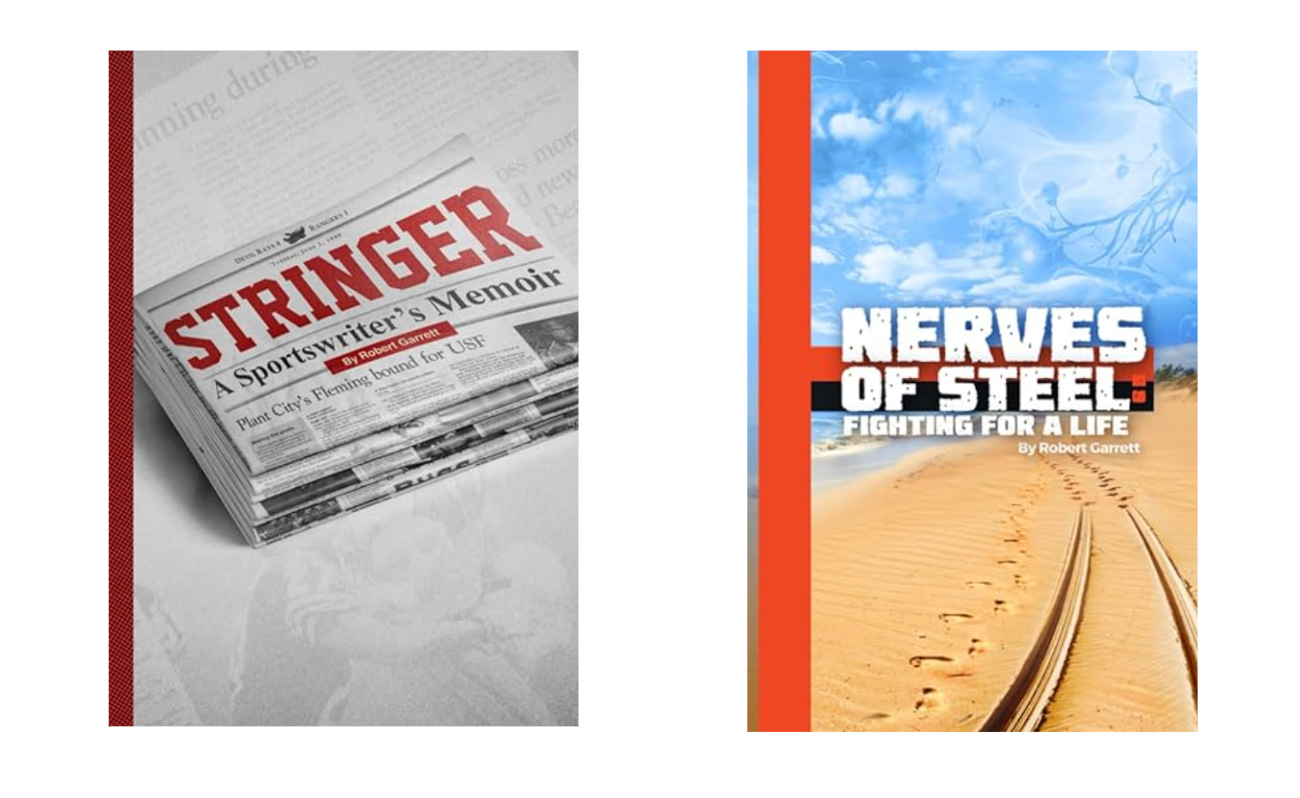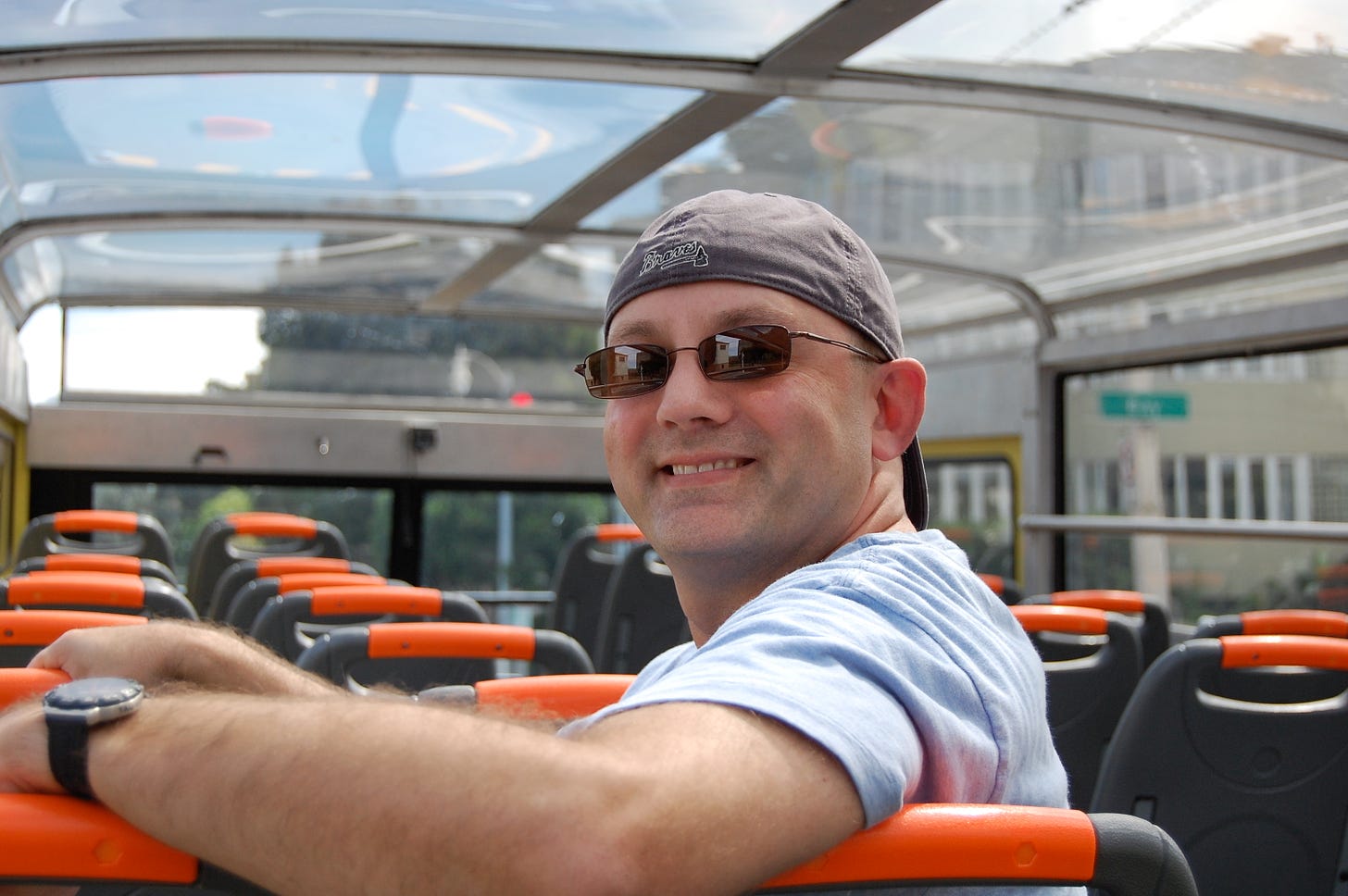Resilience Spotlight: Robert Garrett of The Positive Perspective
On writing, living with ALS, and finding life's little joys
For a long time, I have wanted to feature other perspectives here on Hello, Adversity. Everyone is dealing with challenges and there are so many instructive stories that we can learn from. Inspiring role models are everywhere if you know where to look.
Today, I am excited to share the first installment of a new Q&A series where I interview interesting people about their adversity journeys and what they’ve learned along the way. My goal is to publish a new interview every few weeks.
My first guest is
, author of newsletter.Robert has been living with amyotrophic lateral sclerosis (ALS) for the last thirteen years. In his newsletter, Robert writes about various topics, including life with ALS, stories from his past, and anything else that’s on his mind that week. What I like about his writing is that he is not afraid to discuss difficult topics while also managing to mix in a little bit of humor along the way.
Robert is the author of two books, Stringer: A Sportswriter's Memoir, and Nerves of Steel: Fighting for a Life.
Below is our email Q&A. Robert, thank you for your willingness to share your story!
1. Please tell me a little bit about your journey — what life was like before ALS, how you were diagnosed, and what you’re doing now.
I grew up in Central Florida in a blue-collar family. I worked retail after high school and then I stumbled into a sports writing career. I started covering high schools but worked my way into covering the [National Football League’s] Tampa Bay Buccaneers, amongst other professional events. I then left journalism for the corporate world and software training. That's been my career for the last 24 years. I'm currently the director of training at a risk and insurance software company.
I picked up writing again during COVID, although I would have loved to learn to make sourdough bread. I wrote my first book about my sports writing career and my second one about my ALS journey. I started
last July.I have been married since 2001 and I have two teenage sons.
Regarding ALS, like a lot of people who have this disease, I was very active. I always had a motor. When my symptoms first cropped up, my boys were young, so that was the most difficult part to reconcile. The diagnosis took a long time and was mentally draining. I also learned that Western medicine doesn’t always know everything, which was an eye-opener.
It was an arduous journey, to say the least. Lots of needles, some electric shocks, headaches, nausea, despair.
2. How would you describe ALS to someone who may not be familiar?
If you remember the Ice Bucket Challenge, that was started for ALS research. ALS is essentially when your nerves don’t communicate with your muscles and the muscles stop working. It can start anywhere in the body. You still have nerve sensation and can feel everything. It’s like being paralyzed but you can still feel. For some people, it is a very quick cycle.
The guidelines say 2 – 5 years. My progression is very slow as I’ve been sick for about 13 years.
3. Your site is called The Positive Perspective. Do you consider yourself to be a positive person? Were you always positive, or is it something you've learned to cultivate?
First of all, I’m not a big fan of that name. Maybe it’s corny, but it’s the best I could do! I digress…
Yes, I’ve always been a positive person. I enjoy making people laugh. I look for the little joys in life. A cool breeze on a fall day. The way the sky turns purple in the winter when the sun sets. Meaningful time with friends. I anchor myself to those things and they provide mental sustenance.
However, when I became sick, there definitely was a time when I struggled with staying positive. But, I found that just taking one day at a time worked for me. I can’t control the future even though I know ALS is undefeated. What I can do is fight this booger of a disease by living through it.
What you’ll find on my site are stories about my life, my experiences, and the people I met. The impetus came from my oldest son who read my books and wanted to know more about my life before they were born.
4. Tell me a little bit about your support system. Do you find it easy or difficult to ask for help, and if it's gotten easier, what has that evolution been like?
ALS is a family disease. My wife, my mother-in-law, my sister, my brother-in-law all help me. When friends come over they help by giving me a drink or tossing some food in my mouth. A lot of my friends have fed me which is kind of weird to say. But I hope they know that I would do the same thing for them.
At this point in my progression, I need help with everything so I’m not afraid to ask for help. But there was an adjustment. Because I was such an able person when I was falling apart I was extremely stubborn. I hid things from people that I shouldn’t have. I like to think that I’ve gotten better about it. But it’s still hard to lose your independence.
5. What resilience strategies or frameworks have helped you navigate life with ALS?
I’ve never been a “woe is me,” kind of person. So my wiring tells me that I must move forward. I focus on my family first. I’m still able to work thanks to some amazing technology. That helps keep me mentally sharp and also the interactivity is important.
I have become an expert in compartmentalizing things. I know that might sound unhealthy but it works for me. I actively focus on squeezing the joy out of the day, whatever little droplets I get.
Finally, writing really has been a key factor in helping me express some serious trauma and expel it from my system.

6. You have written two books. How has writing about your story helped you come to terms with your journey?
The first book, Stringer: A Sportswriter's Memoir, was my COVID project. My main driver was to write about my favorite time of my life from a career point of view for my sons. For most of their life I have been declining, so I wanted to show off how cool their dad once was.
But my second book, Nerves of Steel, was a trauma–palooza. My inspiration was my wife who has been steadfast in her support and care.
This was my chance to tell our story. How an ordinary family dealt with extraordinary circumstances.
Writing it was extremely cathartic. I keep a copy of both of my books on my desk to remind me a) Look at what I did! and b) that I know what they represent.
Stringer fills me with a wonderful, warm nostalgia. When I look at Nerves it represents a treasure chest of suffering that I’ve removed from my being.
There are some parts that I’m pretty sure I blacked out while writing. It required me to revisit things I never wanted to see again.
But, all in all, I am supremely proud that I took the first step to write.
















Thank you Chris for the opportunity to meet your readers!
Chris, thanks for giving us the opportunity to meet Robert and hear his story!
Robert, it was so interesting to hear you refer to ALS as a "family disease." I've heard that term before in the context of alcoholism, where it has a much more negative connotation. Despite the many challenges of caregiving and receiving care, it's heartening to see this term used in such a loving, supportive context!